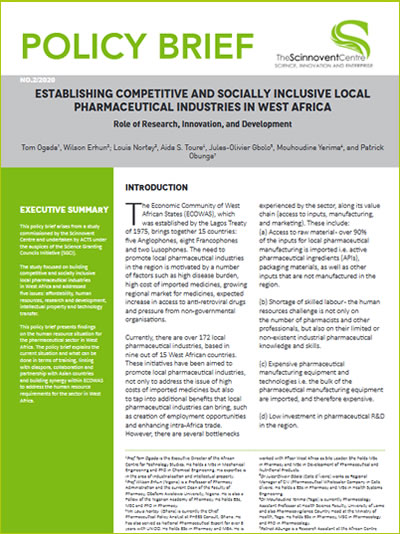Description
This technical paper examines the role and challenges of intellectual property rights (IPRs) in Kenya’s economic development. It highlights the dual importance of IPRs in transforming knowledge into marketable private goods and facilitating the disclosure of technical information. However, awareness and utilization of intellectual property in Kenya remain low, with only 12.9% of firms securing patents and 65% of innovators not protecting their inventions. The study analyzed data from the Kenya Industrial Property Institute (KIPI) between 1990 and 2013, revealing that only 26.4% of granted patents were awarded to Kenyan nationals, despite national applications accounting for nearly half of all filings. Challenges include long approval times for national applications, poor drafting of applications, failure to meet criteria, and lack of responses to KIPI examiners’ queries.
To address these issues, the study recommends increasing education and awareness about IP protection, improving KIPI’s communication processes, and providing institutional and financial support for local inventors. It also suggests fostering partnerships to reduce financial burdens, incentivizing universities through competitive rankings and performance-based evaluations, and incorporating IP applications as part of staff recruitment and promotion criteria in universities and research institutes. These measures aim to enhance the uptake and utilization of IPRs in Kenya, thereby boosting innovation and economic growth.









Reviews
There are no reviews yet.